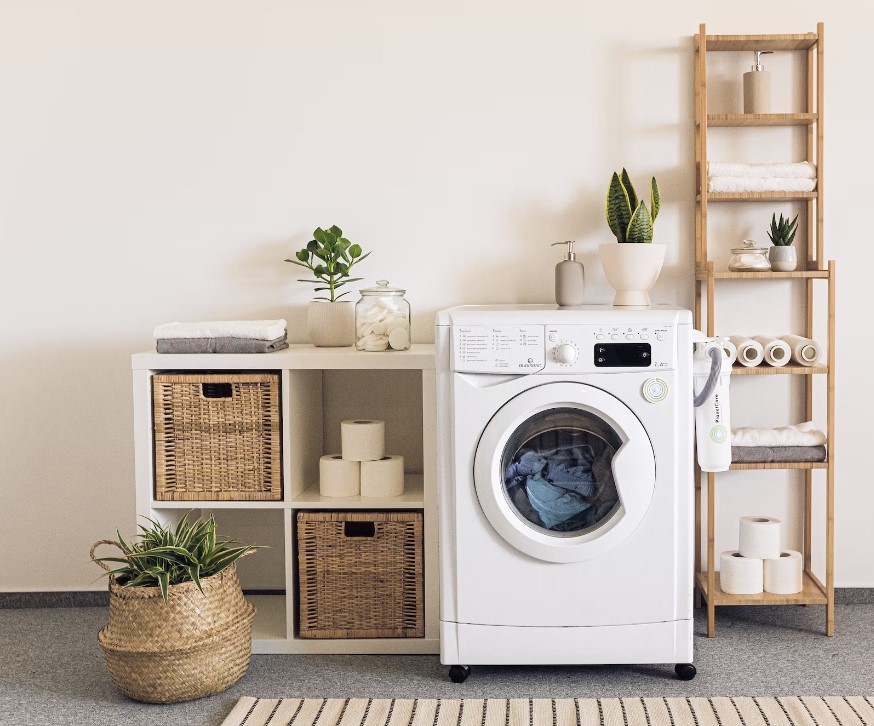Washing Machine Maintenance Tips That May Surprise You

Your washer is a critical part of your home, but it’s often one of the least-cared-for appliances. Since proper maintenance can help extend the life of your washer, it’s important to know how to keep it in good working order. We’ve put together a list of some simple tips that will help keep your washing machine running smoothly and efficiently.
Use the recommended detergent
If you’re worried about the chemicals that might be present in detergents, then stick with natural products like borax, baking soda or vinegar. However, if you want your clothes to come out clean, then use a detergent formulated for high-efficiency machines (HE). These detergents contain surfactants that can remove stains effectively while keeping clothes soft and fluffy. Most modern washing machines have an automatic dispenser which automatically pours out the right amount of detergent required for a cycle based on its weight.
Don’t overfill the drum
Overfilling can cause leaks because water won’t be able to circulate properly through the machine when it’s agitating or spinning. It also causes excessive wear on parts such as bearings and seals that are designed for specific volumes of water in each cycle.
Clean Out Washing Machine Filter
If you’ve ever wondered why your washing machine is making a lot of noise or not cleaning well, the answer may be in the filter. Over time, soap scum and residue build up in the filter, which affects how well it works.
To clean it out:
Remove the filter from your washing machine and set it aside. Clean with warm water and a cloth. Rinse with clean water and allow to air dry completely before reinstalling.
Inspect Hoses
The first thing that many people don’t think about when it comes to washing machine maintenance is inspecting their hoses regularly. This is especially important if you have an older model or if you live in an area with hard water. Over time, these hoses can become clogged with minerals and buildup from the water supply. When this happens, they stop working properly and may even burst under pressure, which could cause serious damage to both your house and its contents (like your clothes).
Check the seals
Washers have seals around doors and other openings to keep water from leaking out of them during operation. If these seals become damaged or worn out after years of use, they can cause leaks inside your washing machine during operation or even lead to mold growth in hard-to-reach areas around your home after prolonged exposure to moisture.
Clean the Rubber Gasket
The rubber seal around the door of your washing machine can get dirty over time. If this happens, it will not be able to do its job properly, which means that water may leak from around the door. This can cause damage to your flooring and walls. To keep this from happening, clean any dirt or dust away from this area periodically with warm water and soap. This should prevent any leaks from occurring in the future.
Keep the interior clean
You should always clean the inside of your washer after each use. This will prevent mold and mildew from growing in the drum of your machine. Over time, this can cause damage to its internal parts.
Avoid moisture
If you leave wet clothes or moisture in your washing machine, you run the risk of mold growth and mildew. This can affect how well your clothes get cleaned in the future and contribute to other issues such as rust. The same rule applies if you use bleach or fabric softener in your wash loads; be sure to empty out any remaining wetness after each load you run through.
If a part breaks, replace it
If your washing machine starts making weird noises or seems like it’s not working properly, check out these tips for diagnosing the problem. If you’ve replaced the belt, but you still hear loud noises coming from inside your washing machine when you start it up, there could be another issue at play. Your next step should be checking for broken pulleys or other internal parts that could be causing additional problems.
If you have an older model, try to replace the part with the new LG washing machine parts. This will ensure that the new part fits snugly and works as well as your old one did. If you can’t do it yourself, be sure to call professionals to help you.
Check the water level
You should always fill your washing machine with enough water so that it covers at least two-thirds of the clothes. If you’re using too little water, your clothes may not get clean or rinse properly. If you’re using too much water, it can cause mold and mildew problems in your machine. Avoiding either situation means keeping an eye on how much water you’re adding to each load of laundry and adjusting accordingly.
Once you have a washing machine, it can be difficult to keep it in good condition. However, with the right maintenance tips and tricks, you can ensure that your appliance lasts for years to come.